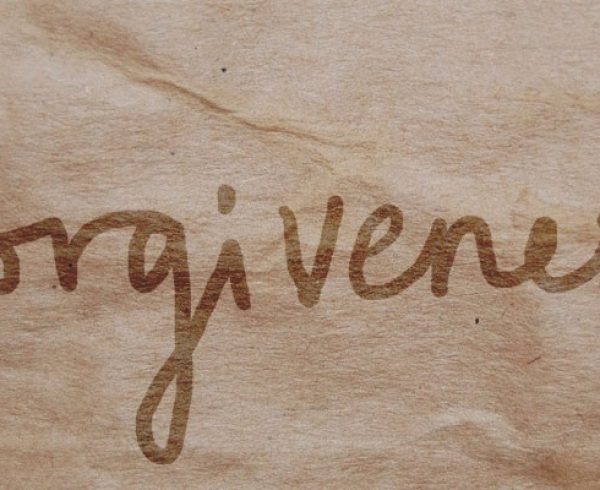This article is written by Melissa Dahl and first appeared in Huffington Post.
The offense-apology-forgiveness cycle is a draining, regimented ritual for public figures. Just in the past few weeks, Benedict Cumberbatch made an ill-conceived comment about race, referring to black actors as “colored”; apologized; and was (mostly) forgiven. Then there’s Brian Williams, and others with such charged pasts that new offenses and new apologies hardly seem to move the dial at all, like when Kanye West “upstaged” Beck at the Grammys. Below, our best grab bag of insights from social science about forgiveness theater.
1.The scientific literature on forgiveness only dates back to 1989, amazingly.
But some researchers suggest we’re seeing more examples of public figures seeking forgiveness lately because we’re becoming more aware of the importance of seeking reconciliation.
2. Cats never forgive.
Scientists have observed conciliatory behavior in many different animal species; the bulk of the research has been on primates like bonobos, mountain gorillas, and chimps, who often follow confrontations with friendly behavior like embracing or kissing. Scientists have observed similar behaviors in non-primates like goats and hyenas; the only species that has so far failed to show outward signs of reconciliation are domestic cats.
3. Humans are less likely to forgive public figures than loved ones.
With personal forgiveness, the resentment we feel is usually going to weigh more heavily on us, says sociologist Everett Worthington — but this actually motivates us to reconcile.
4. Also, it’s harder to believe public figures’ apologies.
We have history with a loved one who’s harmed us, Worthington says, so we can judge the sincerity of their contrition. With a celebrity or politician, it’s less clear.
5. No offense is unforgivable.
“I have never found a particular injustice in the world that I don’t know of at least one person who’s forgiven the people who have perpetrated it,” says Robert Enright, a psychologist who pioneered the study of forgiveness. It’s more accurate to say that there are particular people who are more or less forgiving.
[cm_ad_changer campaign_id=”1″ debug=”0″]
6. But betrayal does work a little differently.
According to a study from 2010, the most common type of unforgiven offense is betrayal, including affairs, deceit, broken promises, and broken secrets.
7. There are different kinds of forgiveness.
Decisional forgiveness is largely external; it’s a change in the way you behave toward someone who’s wronged you, even though you may still feel negatively toward the person. Emotional forgiveness, on the other hand, is an internal change in the way you feel toward this person — resentment giving way to positive emotions like empathy, sympathy, compassion, and even love. That’s the real kind of forgiveness; the other one is the much more common playacting variety.
8. Forgiveness comes easier to younger children.
Unlike 10- and 11-year olds, 7- and 8-year-olds in one study didn’t need an apology to forgive; they tended to judge offenders who had apologized and those who hadn’t as equally worthy.
9. And they learn early.
In a different study from the 1990s, some children as young as 2 or 3 apologized when they had been led to believe they had damaged a valuable object.
10. Carrying a grudge literally weighs you down.
Researchers at Erasmus University asked people to write about a time when they either gave or withheld forgiveness. They then asked their human guinea pigs to jump as high as they could, five times, without bending their knees. Those who had been thinking about a time when they’d forgiven jumped highest, about 11.8 inches on average; those who had written about their grudges, on the other hand, jumped 8.5 inches — a huge difference, and a startling illustration of how forgiveness can actually unburden you.
11. Extroverts are kind of needy about forgiveness.
Your personality seems to affect how easily you’re able to forgive, and people who score high in extroversion are much more proactive in seeking out forgiveness than introverts (though also, notably, quicker to forgive others). Introverts tend to be initially more concerned with forgiving themselves than making amends with the person they’ve offended.
12. For a healthier heart, be more forgiving.
When people are reminded of grudges they’re carrying, research shows that their heart rates and blood pressure can increase. Forgiveness, on the other hand, has been linked to better heart health. Plus you’ll sleep better when you let bygones be just that. But keep in mind you can’t fake it: Researchers believe that the health benefits associated directly with forgiving apply only to emotional, not decisional, forgiving.
13. Sometimes forgiveness can backfire.
Couples who described themselves as more forgiving also reported experiencing more psychological and physical aggression over the first four years of marriage. In some cases, researchers believe, forgiveness may keep the offending people from changing their bad behavior.
14. Don’t underestimate the words “I’m sorry.”
Behavioral economist Dan Ariely has found that repeatedly asking forgiveness will eventually extract it from others — even if you don’t really mean it, and even if the person you’ve wronged knows you don’t really mean it.
15. The perfect model of forgiveness is a 20-step process.
Enright says it can be summarized in five: (1) Admit you’ve been treated unjustly. (2) Respond with anger. (3) Work on seeing the person who harmed you as not solely defined by this offense. (4) Come to understand that the pain may not ever dissipate completely. (5) Find meaning in your suffering, perhaps by helping others.
16. Generally speaking, religious people are more forgiving than nonreligious people.
This is perhaps not surprising; most of the world’s religions teach forgiveness, says Worthington. But, interestingly, a 2013 study he co-authored found that people who consider themselves “spiritual” are more likely to practice self-forgiveness than people who called themselves “religious.” Still, forgiveness works the same in religious and secular contexts — it’s the same process, psychologically speaking, says Worthington.
17. The Amish are very forgiving.
Nearly a decade ago, after a shooting at an Amish schoolhouse, outsiders were stunned when the community responded with immediate forgiveness. In researching how, sociologist Donald B. Kraybill found that from a very early age, the Amish practice forgiveness exercises with their families. They’d been preparing to forgive this huge injustice their whole lives.
Melissa Dahl is a senior writer at New York Magazine.







Leave a Comment